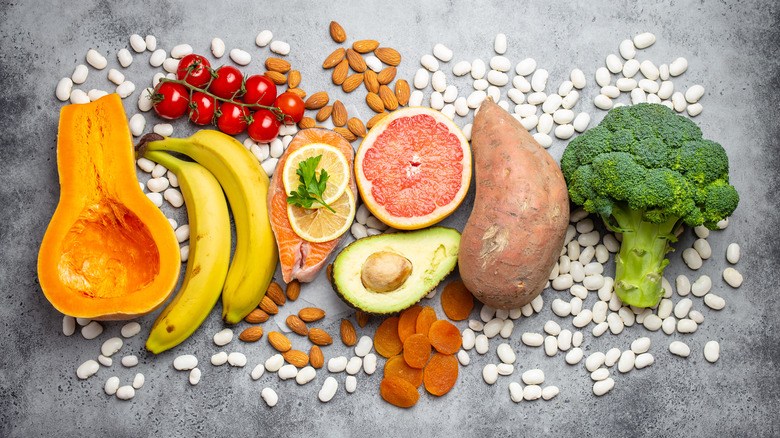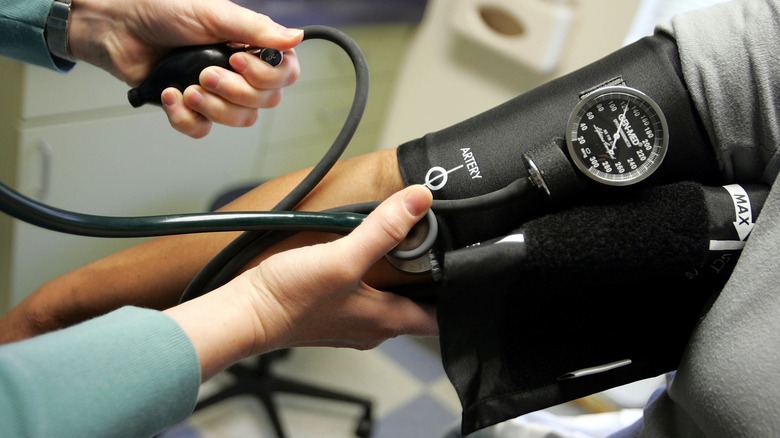New Study Links Potassium With Better Heart Health In Women
Potassium can be found in foods like peas, bananas, and spinach, per WebMD, and it is also present in several types of fish, beans, and dairy products. Healthline states that a higher-potassium diet may reduce the risk of strokes, reduce water retention, and help prevent osteoporosis and kidney stones. They add that the electrolyte has even been known to keep your muscles healthy and improve blood pressure.
High blood pressure, or hypertension, impacts nearly 47% of the American adult population, according to the CDC, and only around 25% of those people have their hypertension under control.
The World Health Organization recommends that people should consume at least 3,510 mg of potassium daily, and less than five grams of salt — too much sodium intake can lead to cardiovascular issues, like hypertension. A new study backs up this recommendation, and has revealed that potassium intake may be especially important for one group of people in particular.
Women benefited more than men
A new study found that while potassium is important for everyone, women with a high-sodium diet should eat more potassium-rich foods to reduce the negative effects from the sodium intake. The study, published in the European Heart Journal, observed 11,267 men and 13,696 women over the course of the research, which began in 1993.
The researchers found that women who had a greater sodium intake in their diets benefited more from increased potassium than men, though both groups showed improvements. The researchers concluded that women with increased potassium in their diets have lower risks of cardiovascular disease at a greater rate than men.
Professor Liffert Vogt, one of the study's co-authors, told Science Daily that people should strive to eat more unprocessed, fresh foods, since they are naturally higher in potassium and lower in sodium. Modifying the diet to include more potassium-rich foods may help a person manage their blood pressure, notes the American Heart Association.

